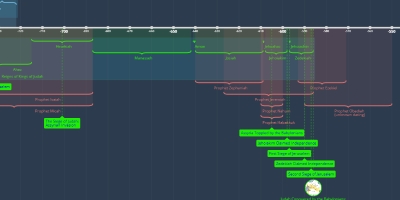1 gen 985 anni a. C. - David and Batsheba
Descrizione:
The infamous episode of David’s illicit relationship with Bathsheba and the eventual rebuke by prophet Nathan (2 Samuel 11) is the backdrop for psalm 51. The psalm has been one of the best known penitential psalms in the classical Christian tradition, in which sin is confessed and forgiveness is anticipated. A closer look between the accounts in 2 Samuel and Psalm 51, however, do not entirely align. Although most of both narratives are consistent, one major difference is the positive mood and expectation evident in the psalm, in contrast with the somber tone of 2 Samuel 11 account, where David went through deep sorrow and anguish over the loss of his son as God’s punishment. Despite the differences, in both passages, David’s confession was accepted and although David could not escape from the consequences of his sins, he was nevertheless forgiven.Psalm 51 (NRSV)
Prayer for Cleansing and Pardon
To the leader. A Psalm of David, when the prophet Nathan came to him, after he had gone in to Bathsheba.
1 Have mercy on me, O God,
according to your steadfast love;
according to your abundant mercy
blot out my transgressions.
2 Wash me thoroughly from my iniquity,
and cleanse me from my sin.
3 For I know my transgressions,
and my sin is ever before me.
4 Against you, you alone, have I sinned,
and done what is evil in your sight,
so that you are justified in your sentence
and blameless when you pass judgment.
5 Indeed, I was born guilty,
a sinner when my mother conceived me.
6 You desire truth in the inward being;
therefore teach me wisdom in my secret heart.
7 Purge me with hyssop, and I shall be clean;
wash me, and I shall be whiter than snow.
8 Let me hear joy and gladness;
let the bones that you have crushed rejoice.
9 Hide your face from my sins,
and blot out all my iniquities.
10 Create in me a clean heart, O God,
and put a new and right spirit within me.
11 Do not cast me away from your presence,
and do not take your holy spirit from me.
12 Restore to me the joy of your salvation,
and sustain in me a willing spirit.
13 Then I will teach transgressors your ways,
and sinners will return to you.
14 Deliver me from bloodshed, O God,
O God of my salvation,
and my tongue will sing aloud of your deliverance.
15 O Lord, open my lips,
and my mouth will declare your praise.
16 For you have no delight in sacrifice;
if I were to give a burnt offering, you would not be pleased.
17 The sacrifice acceptable to God is a broken spirit;
a broken and contrite heart, O God, you will not despise.
18 Do good to Zion in your good pleasure;
rebuild the walls of Jerusalem,
19 then you will delight in right sacrifices,
in burnt offerings and whole burnt offerings;
then bulls will be offered on your altar.
------------------------------------------------------------------------
Angelika Kauffmann ,
And Nathan said unto David thou art the man, 1678, Oil on Canvas, accessed October 24, 2020, https://thomistica.net/essays/2020/4/29/the-psychological-possibility-of-mortal-sin-a-reply-to-hart.
Brueggemann, Walter, and William H. Bellinger. Psalms. New York, NY: Cambridge University Press, 2018, 235-239.
Aggiunto al nastro di tempo:
Data:
1 gen 985 anni a. C.
Adesso
~ 3012 years ago
